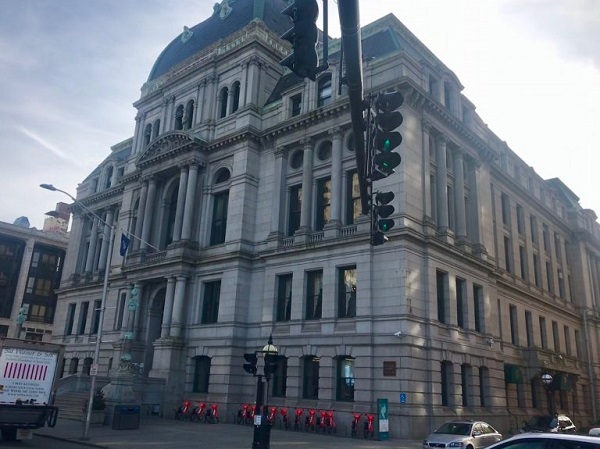
PROVIDENCE – A panel of city lawmakers gave preliminary approval on Thursday to a $10 million spending plan aimed at closing the racial wealth gap.
The Providence City Council Committee on Finance’s unanimous vote on the racial reparations program budget came after more than two hours of impassioned testimony from officials, advocates and residents, including an unscheduled public comment period. While council members and community advocates agreed on the importance of putting focus, and funding, on Black and Indigenous residents, they didn’t see eye to eye on the details of the line-item spending plan.
The $10 million budget was unveiled by Mayor Jorge O. Elorza in August with specific dollar amounts for a host of new city programs and policies, based on recommendations put forth by the Providence Municipal Reparations Commission. The largest chunk of funding, $1.5 million, would help small-business owners through technical assistance, direct loans or other programs to start or expand operations.
The budget also sets aside $1 million apiece for home repair fund, a home ownership and financial literacy program, paid workforce training, and to expand African heritage and Indigenous-owned media firms.
The budget does not include any direct payments, despite this being traditionally associated with racial reparations. The programs also aren’t exclusively for Black and Indigenous people, although community advocates say that will still be the focus. However, low-income people and those who live in certain neighborhoods, regardless of race, could also benefit because of federal mandates around the stimulus money that is being used to fund the initiative.
City administrators and community leaders involved in shaping the recommendations offered further details during a 1.5-hour long presentation to the committee. Council members peppered presenters with questions about the spending plan. Several suggested the spending on homeownership and workforce training was duplicative of similar programs included in the city’s broader, $124 million ARPA budget. Others wondered how to ensure the programs continue after the one-time funding runs out.
Though the meeting was not intended to include public feedback, a small crowd of community members filled the room and were allowed to share their feedback. Several praised the plan, stressing the significance for residents of color having their voices heard and input acknowledged by City Hall. Others raised concerns, noting that the budget does not include traditional tenets of a reparations program, and the need for more community input.
With the committee’s approval on Thursday, the spending plan now heads to the full City Council for further review and a vote, a date for which has not been set.
Also on Thursday, the finance committee voted to schedule upcoming public hearings for several proposed tax deals on downtown development projects. Among them: a 30-year discount on city property taxes for the “Superman” building redevelopment, and a 20-year tax deal to turn the former Providence Journal building on Westminster street into a residential and retail space.
Nancy Lavin is a PBN staff writer. You may reach her at Lavin@PBN.com.












